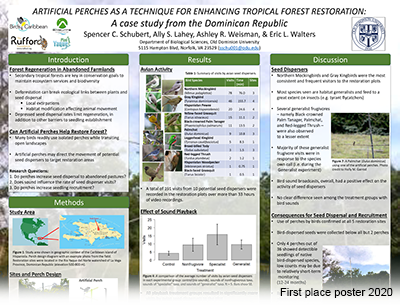College
Strome College of Business
Program
Ph.D. Public Administration and Policy - School of Public Service
Publication Date
Spring 2020
DOI
10.25883/hh3x-4y25
Abstract
Diversity, equity, and inclusion are words that spark the attention of the public and private sectors alike. Institutions such as universities, government agencies, and nonprofit organizations are taking the initiative to challenge conventional attitudes and foster equity within their communities. Academia is one discipline that is experiencing a significant shift towards increased diversity and inclusion, but much work is needed to further promote equity. Disparities in education are among the most significant factors that impact long-term success. Beginning in primary school, children who are not afforded quality education are placed at a lifelong academic disadvantage. They are also less likely to come from families of college graduates; therefore, it is questionable if they receive adequate guidance on options following high school. Furthermore, these students are less likely to pursue college education, and those that do are faced with obstacles that often plague first-generation students. The purpose of this study is to explore the motivations and perceptions of first-generation doctoral students – students who are the first in their immediate families to pursue doctoral degrees. The study allows researchers to analyze trends in motivations and perceptions of first-generation doctoral students to examine the equitability of doctoral education from the student perspective. A social constructivist case study of first-generation doctoral students at a large research university in Hampton Roads was used as the foundation for this project. Four students participated in the focus group, and a semi-structured interview style was used. The researcher found that professional, familial, and personal motivations and competing self (internal) and social (external) perceptions most affected participants’ doctoral experiences. This study presents preliminary findings on research in an emergent area; the researcher’s next steps include collecting survey data and developing an academic equity lens tool.
Keywords
Diversity, Equity, Inclusion, Academia, First-generation students, First-generation doctoral students, Disparities
Disciplines
Disability and Equity in Education | Higher Education | Higher Education Administration | Public Administration
Files
Download Full Text (883 KB)
Recommended Citation
Hill, Saige, "Exploring the Motivations and Perceptions of First-Generation Doctoral Students Abstract" (2020). College of Business (Strome) Posters. 3.
https://digitalcommons.odu.edu/gradposters2020_business/3

Included in
Disability and Equity in Education Commons, Higher Education Commons, Higher Education Administration Commons, Public Administration Commons


